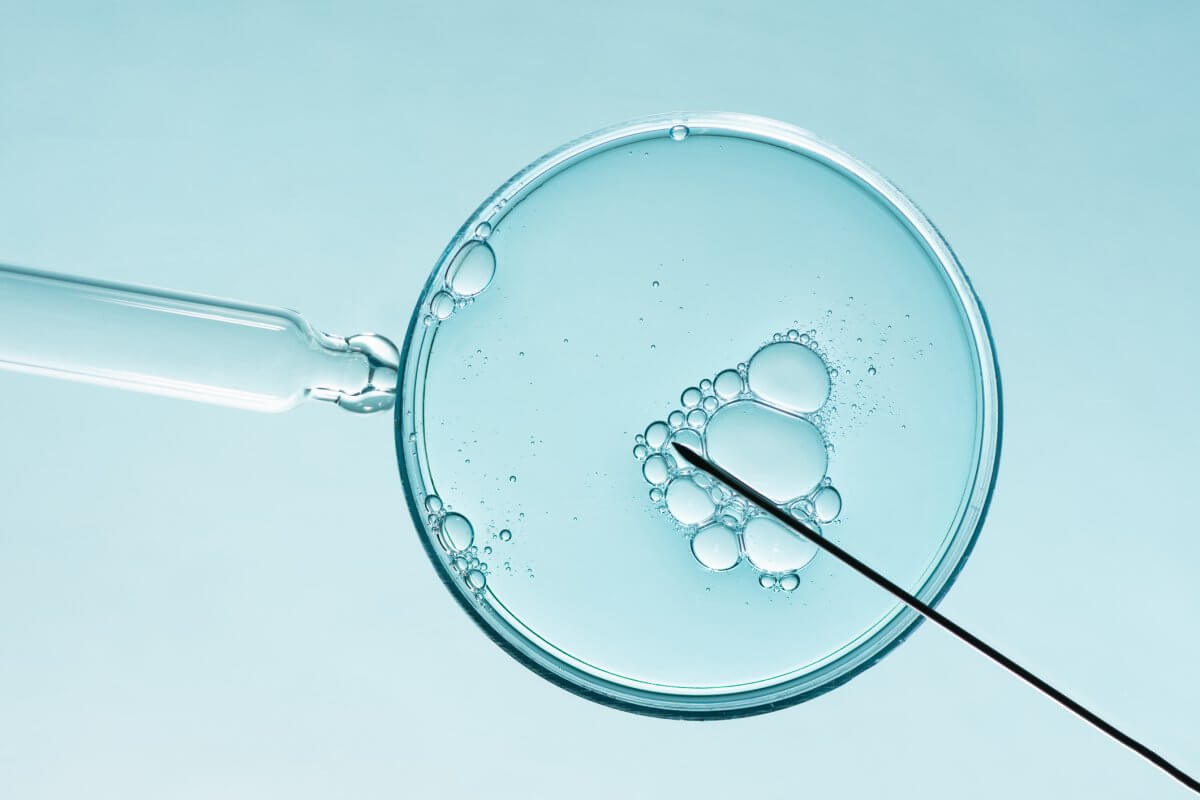Surrogacy is becoming an increasingly popular way to start and grow families, and IVF is an important part of the process.
Read on to learn the details of how IVF in surrogacy works, and how embryos are handled during and after the surrogacy IVF process, or click here to get help from a surrogacy professional now.
Surrogacy IVF Process
While you can use IVF without a surrogate, IVF and surrogacy go hand in hand—surrogacy in the United States almost always uses IVF. Once you have chosen surrogacy and gotten matched with a surrogate, the medical process of surrogacy can begin.
In this medical process, your surrogate will have a final screening and begin pre-pregnancy medications, then your surrogacy medical team will help you complete the following steps:
Retrieve Gametes
To create an embryo, you will need sperm and eggs, otherwise known as gametes. Your medical team will help you retrieve these and preserve them until they are used, or you can use gametes that have been saved previously. You may be able to use your gametes, or you can use donor sperm or eggs.
Create an Embryo or Embryos
Next, your medical team will combine the gametes to form an embryo or embryos.
Embryo Transfer in Surrogacy
The surrogacy embryo transfer process comes next. During surrogacy embryo transfer, the embryo or embryos are placed in the surrogate’s uterus by a medical professional using assisted reproductive technology.
Confirm Pregnancy
After embryo transfer, your medical team will confirm pregnancy, and the rest of the exciting process can begin.
Do you Use All Gametes and Embryos in Surrogacy?
In both IVF and surrogacy, there is a possibility of having unused gametes or embryos at the end of the process.
Some families choose to freeze gametes or embryos for future use as a couple. Some others may choose to discard unused gametes and embryos. Others still may choose to donate unused gametes or embryos to another couple that is struggling with infertility.
How Do You End Up with Unused Embryos or Gametes?
It is not uncommon to have 15 or more eggs and many (possibly millions) more sperm after gamete retrieval.
As your medical team combines gametes to form an embryo, you may lose some embryos or sperm—not all gametes can become a healthy embryo.
In some cases, you may end up with only a single healthy embryo, or with no healthy embryos. In some cases, you can end up with multiple healthy embryos without using all of the gametes that were retrieved.
Can I Use All of My Embryos?
If you have multiple embryos, you may have the option to transfer all embryos at the same time, but in some cases, this may not be possible because it can result in an unsafe pregnancy of multiple embryos.
If you choose to transfer a smaller number of embryos, a healthy pregnancy may happen, resulting in unused embryos. In some cases, though, the pregnancy can be unsuccessful.
In cases of an unsuccessful pregnancy, having more embryos ready and waiting can mean you have another chance at conception with another embryo transfer.
What Happens to Unused Gametes and Embryos in Surrogacy?
Each medical provider has their own procedures for handling gametes and embryos, and some medical providers may already ask each patient what their preferences are for unused embryos or gametes and give you options.
These are some of the common options:
Discard gametes and/or embryos: Choosing to discard gametes or embryos means that they will be handled as medical waste. Processes for this option may vary among medical providers.
Freeze gametes and/or embryos: Freezing gametes or embryos can mean you have the option to have another child by IVF or surrogacy in the future.
Donate gametes and/or embryos: If you know that you will not have another cycle of IVF or another surrogate pregnancy, but you don’t want your embryos or gametes to be discarded, you can choose to donate the gametes or embryos to other individuals or couples who may want or need gametes or embryos.
This may mean that you will have another genetically related person in the world in the future, which deserves consideration.
I am Against Having Unused Embryos. Can I Still Do Surrogacy?
Some people see embryos as simply tissue, or a few cells that have divided, while others believe that life begins at conception—when the gametes meet and form an embryo—and that each embryo is a life. If this is an ethical or moral concern, both IVF and surrogacy may still be possible.
One option for those who are against having unused embryos is to do IVF or surrogacy with a donor embryo. When other couples complete IVF or surrogacy, they may freeze unused embryos and offer their embryos to other couples who are struggling with infertility. If you do this, you will help others use embryos that have already been created, and you will not create any embryos that you do not use.
Another possibility is to find a medical provider who can handle your gametes and embryos in a way that you find ethical. Each medical practice may have slightly different processes for gamete and embryo storage and usage, and you can find a medical provider who shares your concerns or is able to work with you to find a solution.
What Should I Do If I’m Concerned about Having Unused Embryos in Surrogacy?
Ultimately, this decision is yours and comes down to your personal ethical and moral convictions.
The good news is that you can always talk through this part of the process with a surrogate professional and your medical team, or even other intended parents to find a solution if you have concerns about the use of embryos in surrogacy. Get help now here.
